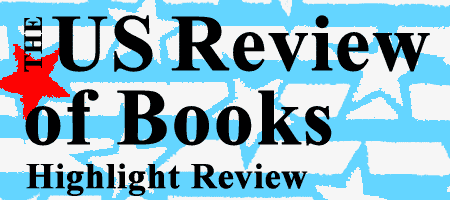
 |
"The Big Bad'' threatens the balance of power in the post-Skycrash world of the Crown. While humans—called mages and imbued with magic after Skycrash—control the Crown with greed and ruthlessness, orcs gather forces at the outer reaches of the world for another deadly encroachment on human settlements. Deodin, "god-killer" and sheyaktu superhuman, is the only one who can save civilization from the Big Bad. But being as powerful as he is numbs Deodin. With very little risk of failure, his heroic deeds become a curse and a burden that alienate him. The Universe puts Deodin in contact with Pel and Garret, citizens with survival skills and diplomatic ties throughout the Crown. Their caring devotion to him and each other changes Deodin's outlook and the course of Crown history.
Convincing realism infuses David's futuristic, fantastical tale. It combines The Lord of the Rings, the Harry Potter books , and The Lost City in its otherworldliness, celebration of timeless virtues, and humor. Pel, Garret, and other Crown folk speak in a down-to-earth, gritty brogue that grounds the tale in relatable encounters. Pel and Garret and a pair of mages' sweet and refreshing romances stand in contrast to their corrupt cohort in the Tower (the Crown's governing entity and building). Female characters are powerful and strong role models, while male characters attract their counterpoints' capacities with loving gestures and ample room to grow, reflecting healthy, progressive partnerships. The mages' manipulation of civic resources and abuses of power are recognizable and relevant. They are aptly villainous while also sneaky and conniving enough to fool characters and readers into trusting them sometimes.
Despite Deodin's magical prowess, he engages in humorous antics, like stopping time long enough to tie Garret's shoelaces together, tripping him. Buying garish outfits and cat paw booties from merchants, fighting forest critters, and talking with dragons provide funny and imaginative interludes between Deodin's existential moments and primary mission. Aside from dangers (orc armies, ruinous Tower plots, and supply chain shortages) described with graphic clarity, Deodin's ennui is the story's most believable and timely aspect. As a hero, he searches for personal answers as he also fulfills his duty. His inner dialogue adds depth to the excitement of the narrative's focused arc toward a final battle. Deodin embodies a familiar personality replete with all knowledge available at his fingertips, leaving him disaffected and bored. Through Deodin, the book asks the contemporary question of whether humanity, in its elevated, near magical position, is its own worst enemy. The book's full-throttled netherworld touches on the world's current state of command and control that can be too much to bear.
Without offering glib or idealistic solutions, the book does suggest a constructive and open-ended optimism. Its quick pace, set by short chapters that toggle between multiple locations and threads, establishes an enticing energy that is maintained throughout. The Universe's lists of tasks, guidelines and rules about magic, and pages from a book from one of Deodin's own kind that he discovers diversify and enliven the text. The unexpected and hopeful conclusion leaves readers satisfied yet wanting more, a happy tension inviting David to follow up on this successful novel.
RECOMMENDED by the US Review